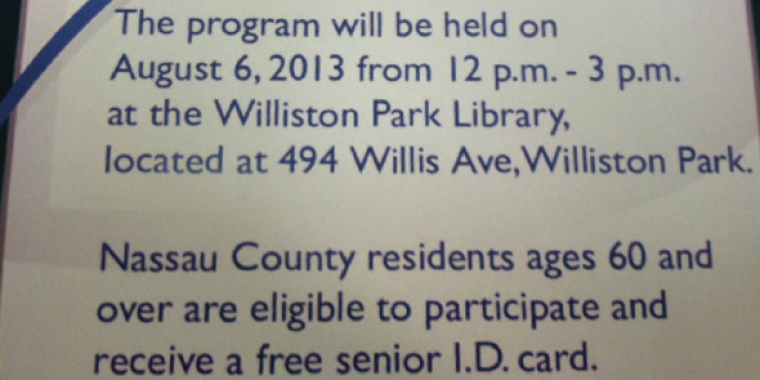From the Desk of Senator Jack M. Martins: LIPA Kept Us in the Dark
LIPA caused us all a lot of grief in the week following the hurricane. There were thousands of people who remained without power after Hurricane Irene and it seemed as if my office heard from each and every one of them. We literally logged hundreds upon hundreds of angry calls and e-mails and most had virtually the same complaint: There was no power and LIPA wasn’t telling them anything. People who were already very upset by not having electricity had their frustration further exacerbated by LIPA’s unbelievable lack of communication.
Unfortunately, in regards to power restoration, all my staff could do was continuously contact LIPA with the complaints and wait for status updates we could share with residents. I did promise myself though that as soon as the lights were back on I would draw attention to LIPA’s utter failure to keep us informed.
Those who called LIPA to report an outage were forced to listen to a recorded message. While LIPA did give periodic updates on the amount of customers that had been restored there were no details as to where and for those without power as to when it might return. People were literally and figuratively kept in the dark. LIPA’s communication was more focused on public relations and less on how to actually improve the situation on the ground for their customers. Had we been given at least some idea of when our power would return, we could have made alternate plans. At the very least we would have had some piece of mind as to when our homes and businesses could return to normal. Sadly, many of those left wondering were seniors, the disabled and the homebound. That’s simply unacceptable.
We understand that Hurricane Irene was strong enough to leave half a million of us without power. We also accept that Long Island has power lines exposed to the elements and numerous trees, so it’s no easy task to remedy wide-scale power outages. What is difficult to understand is how in an age of superb communication technology that relays up-to-the second information from around the world, how LIPA could not occasionally advise people on each particular neighborhood’s status. Utilities do not work haphazardly and they must have been well aware of timelines and expected delays. I must assume they chose not to share that information. I simply cannot understand why.
LIPA currently has a contract in place with National Grid to provide power to its customers. With that contract expiring in 2013, it gives Long Island the opportunity to evaluate how our power is provided. On September 22, I will join my colleagues for a Senate hearing on LIPA’s storm response. While we hope to gain a better understanding of LIPA’s restoration process, I personally hope to press for a change in how they relay information and communicate with us, their customers.
We live on an island. There will be other hurricanes. Hopefully we can shed some light on the process and set LIPA on a course that will prevent these failures in the future.


